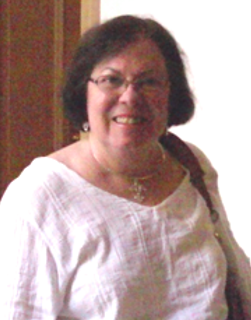“Say what?” Did you just mumble this question to yourself when you read the title of this article?
You have your own reasons to respond this way. Your reasons may go something like this… “Learning is just for kids.” “I already went to school and learned everything I need to know.” “I can’t learn anymore; my mind isn’t up to it.” “Why would I even think about going back to school now when I couldn’t wait to get out of school when I was a kid?”

There was a time when Rose Boop would have agreed with you…
Rose Boop arrived at Trident Technical College (in Charleston, SC) at age 62. The night before her first day of class, she couldn’t sleep. She was terrified! What if “they” found out she had never finished High School? What if “they” wouldn’t let her in the door?
School had been a horrible experience for Rose. “I can’t remember one single happy day when I was in school,” she shared. She had been shy and easily intimidated as a girl. She recalled with horror one day when she was required to recite from the front of the room. She said she had been shaking so hard, she kept her coat on to “hold her down.”
So, what was Rose doing at college now, facing her fears at this late date? The impetus that brought her, along with 130 of her peers from the Levi plant in Charleston, was her sudden loss of employment after 30+ years. The plant in Charleston was closing. All work was to be shipped abroad, where labor was cheaper. One day she had a job, the next day her job was gone… eliminated.
Rose needed to work; she needed the income. And if she ever wanted to work again, she recognized that she would have to learn a skill beyond what she knew how to do: attach the collars to shirts. To be employable, she needed a skill that was relevant in the current workplace.
That first day of “class” was an eye-opener for Rose. Surrounded by her friends, all of them “back in school” after 20 or 30 years, her quick mind grabbed hold. She discovered that, in fact, learning came easily to her. And she learned everything twice, because whatever she mastered, she then passed on to the others in her group. Now that she saw what she could do, she set about learning with vigor. And she discovered that there were so many things she wanted to learn. She transformed herself into a learning machine, out to fill herself full after a lifetime of fasting.
Five weeks later, Rose completed all the preparatory work to gain entrance to her choice of certificate or degree programs at the college. Her children and grandchildren proudly attended her graduation from College Prep. From there she advanced forward into the Horticulture Degree program, a field that had always been her first love. Eyes aglow, she would wax poetic about the joys of mastering the names of all the bugs, learning how and why things grow, and developing skills that would transform her into the master gardener she had always dreamed of becoming, with all the expert knowledge she needed to back her up.
What had Rose discovered that changed her from fearful to fierce? From stumbling to searching? From muddled to masterful? From cautious to curious? Who knew who this new Rose was!? And what does that say to the rest of us, now, at this moment in our lives?
Rose’s transformation was all about discovering the very real joy and power of learning when you take charge of it yourself and make it a part of your life permanently.
What’s So Great About Later-in-Life Learning?
To open your mind to the possibilities of later-in-life learning, a major point to grasp is that school was school. That was then and this is now. You were a different person then. So, it all will be different this time.
For one thing, you now know yourself better. You are less likely to be intimidated or cowed. You know what you’d like to learn and why, so you’ll have motivation at a level you never experienced before. Your brain has developed now. You are logical. You will bring to the table your own way of tackling problems. You have had a lifetime of organizing your time. And you are far less likely to get completely and utterly distracted by that little redheaded girl sitting in front of you in math class.
Beyond these obvious but important changes, are these five key benefits of later-in-life learning:
Later-in-Life Learning Stimulates, Feeds and Fuels the Mind
Clearly, learning is good for your mind. It is stimulating and can be exciting. In contrast to early school learning, where one of the main issues was keeping you and your classmates in your seats and quiet, while pouring knowledge into your heads, later-in-life learning can be varied and self-directed. You can take charge of it and customize it to yourself. Later-in-life learning can be exploratory, starting off in one direction, or three, then changing direction later, or adding directions, or combining several directions into an intriguing whole.
Later-in-Life Learning Improves Memory Function & Promotes Brain Health
Research studies are clear that learning leads to improved memory function and brain health. Memory is improved as connections are strengthened between different parts of the brain. The more cognitively demanding the learning task, the higher the brain benefit. Learning a language is a particularly good form of “built-in exercise” since it involves juggling back and forth between two or more languages. Playing music also improves brain health and increases emotional engagement. To flip the coin to the other side, there is the ominous prospect of “use it or lose it.” Why let your brain get flabby when it can be so much fun to keep it sharp with learning?
The Notion that Older Brains are Less Capable of Learning is a Myth
If you are worried that your more mature brain lacks the capacity to learn, think again. Important research out of Duke back in the 70s reversed that myth, although these essential findings are not as generally well-known as they should be.
The myth that our brains only diminish with age grew out of chronological research, where seniors were compared to young people at a single point in time. The Duke studies used the longitudinal method by comparing individuals to themselves across time.
The Duke studies reversed the myth of declining cognitive function in maturity. In fact, the Duke researchers found that “the branching of dendrites increases with age, and the connections between distant brain areas strengthen. These changes enable the aging brain to become better at detecting relationships between diverse sources of information, capturing the big picture, and understanding the global implications of specific issues. Perhaps this is the foundation of wisdom. It is as if, with age, your brain becomes better at seeing the entire forest and worse at seeing the leaves” (Harvard Health Publishing, August 2017)
The results of these studies completely refuted the findings of the chronological studies. Looking across time, when we are compared to our own selves, our cognitive functioning actually increases.
Later-in-Life Learning Feels Good
Learning something new, or even learning something old in a new or better way, is “hard fun.” And hard fun is, well, hard. But it is also fun. As our knowledge and skill levels increase, we relish the rewards of advancing accomplishment. And we stimulate those “feel good” endorphins. When learning revolves around you as “the doer,” and not as the receptacle into which content is poured, the entire experience changes.
Later-in-Life Learning Keeps You Relevant and Interesting
Learning engages you in problem solving, invention and focused pursuit. When you become the explorer, the instigator, the director, and otherwise the person in charge of your learning adventures, you will have stories to tell and fascinating developments to pass on. Your conversation with family and friends, including across generations, will be enriched, along with your social interactions. You will feel interesting because you are interested. And so you will be interesting in your relationships.
So, What Have You Got to Learn?
What are your options of what and how to learn? Start by asking yourself these ten questions and jot down the results. Prepare to surprise yourself.
- What is something you’ve always struggled with?
Learn it now and celebrate victory. - What is something you struggle with now?
Learn fully how to do it and end the struggle. - What is something that would make your world larger?
Take your learning abroad. - What is something that piques your curiosity?
Dig in, then keep on digging. - What is something active you would love to do well?
Exercise your brain and your body at the same time. - What is something of beauty?
Learn to create it, or to appreciate it more fully. - What is something of spirit?
Deepen your spiritual practice through study and contemplation. - What is something creative?
Learn to give voice to your story and color to your visions. - What is something to learn together?
Pick a learning partner, or several, and pursue an area of learning together. - What is something to pursue for purposeful work?
Learn to do well what you would most love to do as work, either to earn income or just for the pleasure of it.

This article was part one of a two article series. Part two Learning Opportunities You May Not Know About will be published in the Vermont Maturity July/August issue.
Dr. Carolee Duckworth helps workers transition from on-site work opportunities to online employment. She co-authors the QuickSwitch series, Shifting Gears to Your Life & Work After Retirement and the co-authors the Your Great Trip series guidebooks for taking immersive, fully independent trips with confidence. All books are available on Amazon. To contact Carolee Duckworth, email her at cwcamer@charter.net.
Related Articles & Free Vermont Maturity Subscription

How Dating can Work in Retirement
More Older Americans Are Starting Their Own Business







Comment here